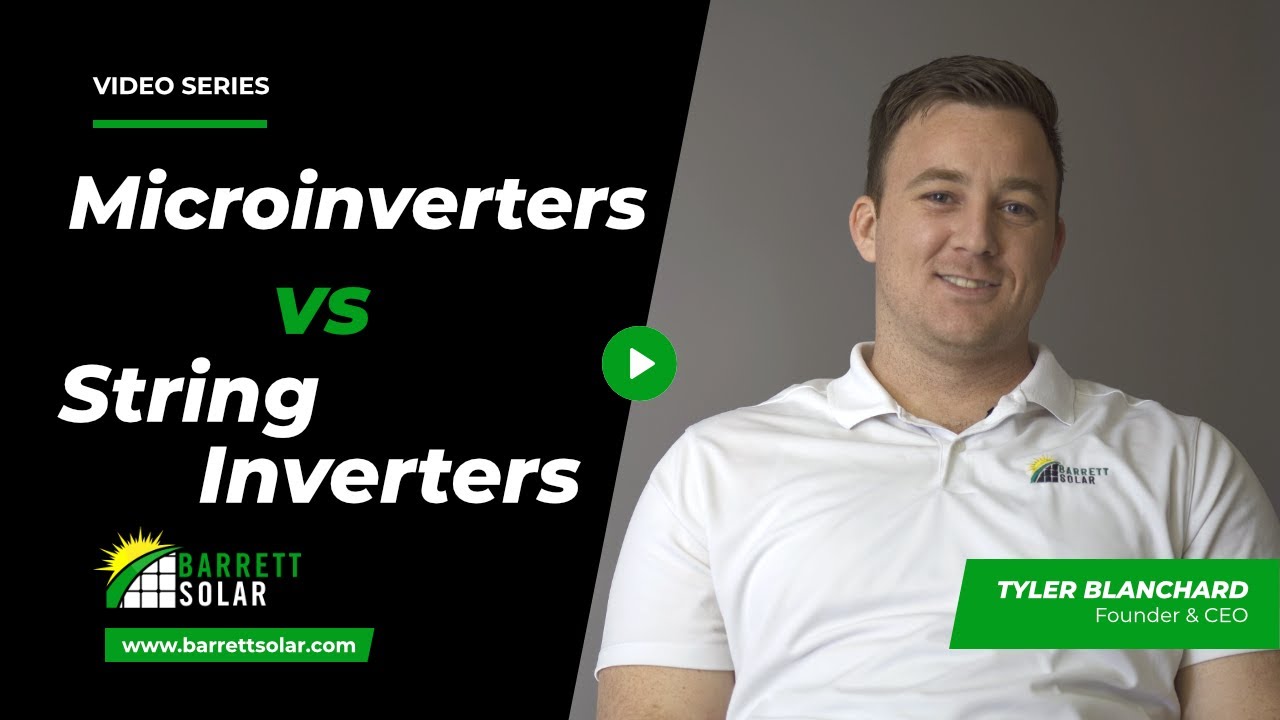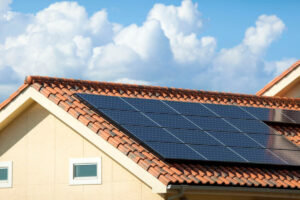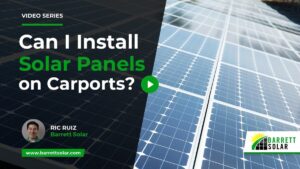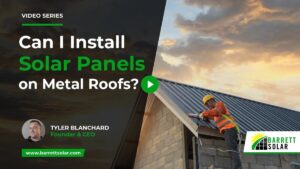When you’re researching your potential solar panel installation, you’re going to encounter two main types of inverters for your system, solar microinverters, and solar string inverters. While they both serve a similar function, they operate slightly differently and have specific benefits and drawbacks unique to each.
What Is A String Inverter?
A string inverter is a type of inverter that is present at the “end of the line” for your solar panels. All of the panels are wired together, their voltages and amperages combined into what the system requires, then the sum of that power is fed into a single inverter. This single inverter is referred to as a string inverter, and it takes the DC from all of the combined panels and creates a more easily usable AC as its output.
What Is A Solar Microinverter?
Solar microinverters are small inverters and microprocessors built into each panel, which provide not only the current modulation and inversion that a string inverter does, but also add additional capabilities. Microinverters refine the current from each individual panel, making it immediately usable, but they also provide rapid shutdown capabilities to the panels in the event of a grid outage.
Solar Microinverters Tend To Have Better Warranties
Another difference between microinverters and string inverters is how they are covered by their respective manufacturer warranties. The current Enphase microinverters that Barrett Solar uses are covered by a manufacturer warranty of 25 years, while string inverters are typically only covered for about 10 years. The warranty on string inverters can often be extended, though this can cost thousands more than the original price of the inverter.
Microinverters Allow Individual Panel Monitoring
Modern microinverters built into each panel can provide a level of transparency to your solar system operation that string inverters simply can’t provide. They augment your system with remote monitoring capabilities with single panel resolution, so if there is a problem the homeowner as well as their solar partner can tell immediately which exact panel it is in the array, allowing for simpler troubleshooting and replacement than ever before.
High-End Microinverters Can Create A Microgrid For Your System
One major benefit to newer microinverters is that they can help your solar system to remain functional even when the utility grid is down, during seasonal weather, for example. Normally, grid-tied solar panels are required by the National Electric Code to have a rapid shutdown feature to avoid back-feeding potentially deadly current to lines that technicians may be repairing. Newer microinverters, however, have the ability to isolate that current into a microgrid just for your home, so that even when the grid goes down, your lights stay on.
Are String Inverters Ever Preferable Over Solar Microinverters?
While microinverters sound like the best solution for nearly every situation, there are some instances where string inverters are the more prudent choice. One major scenario where this is true is in larger commercial installations. Since microinverters do add considerable expense on a per-panel basis, using them for very large commercial installations can quickly become costly. In cases like this, large string inverters are often the more economical choice.
Solar Microinverters VS String Inverters: Trust Your Solar Partners At Barrett Solar
When you work with a local solar expert, being able to trust them is vital, and the professionals at Barrett Solar will never pressure you into any decisions. We’re happy to answer any questions you may have, whether about a whole system or a specific component and give you our professional opinion on what is the best fit for your needs. Contact Barrett Solar today for more information on solar microinverters and to discuss your solar power needs, or to get a free quote and decide if you’d like to take the first step toward owning your own energy.







